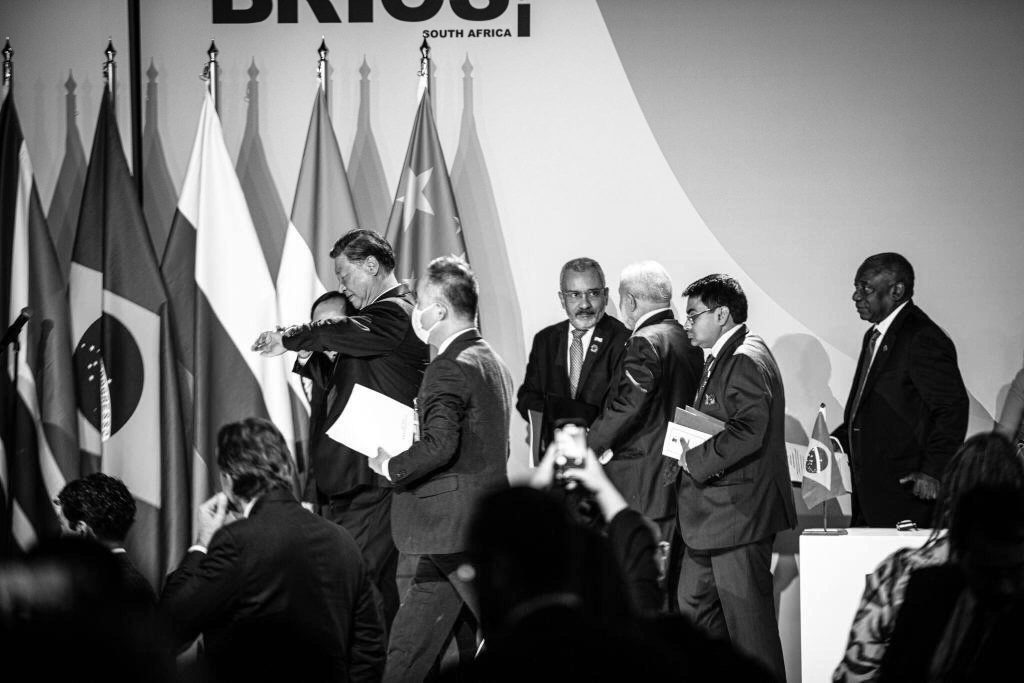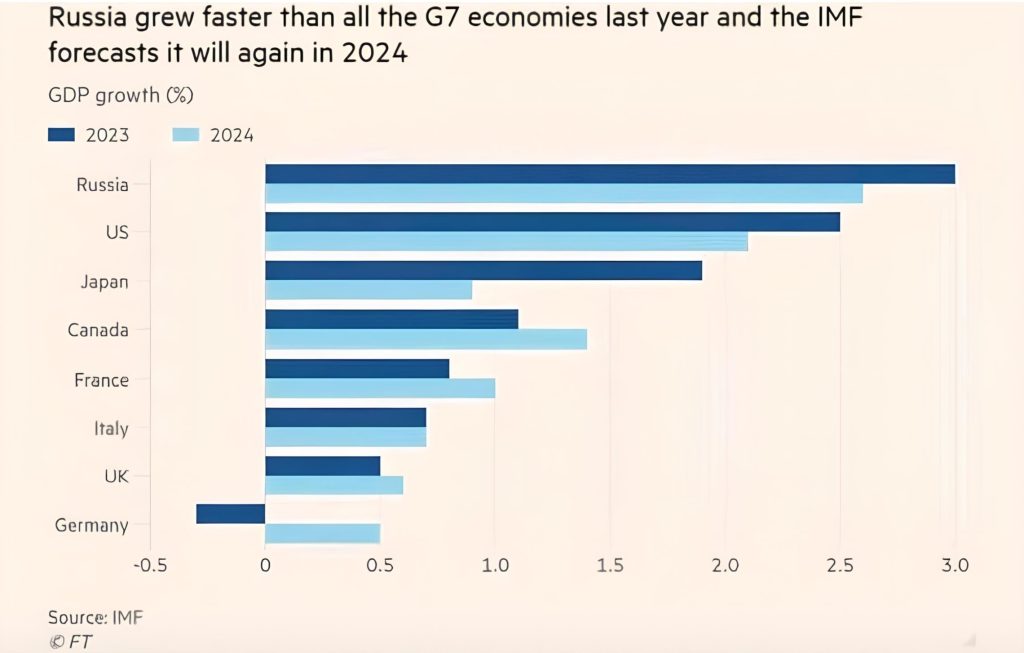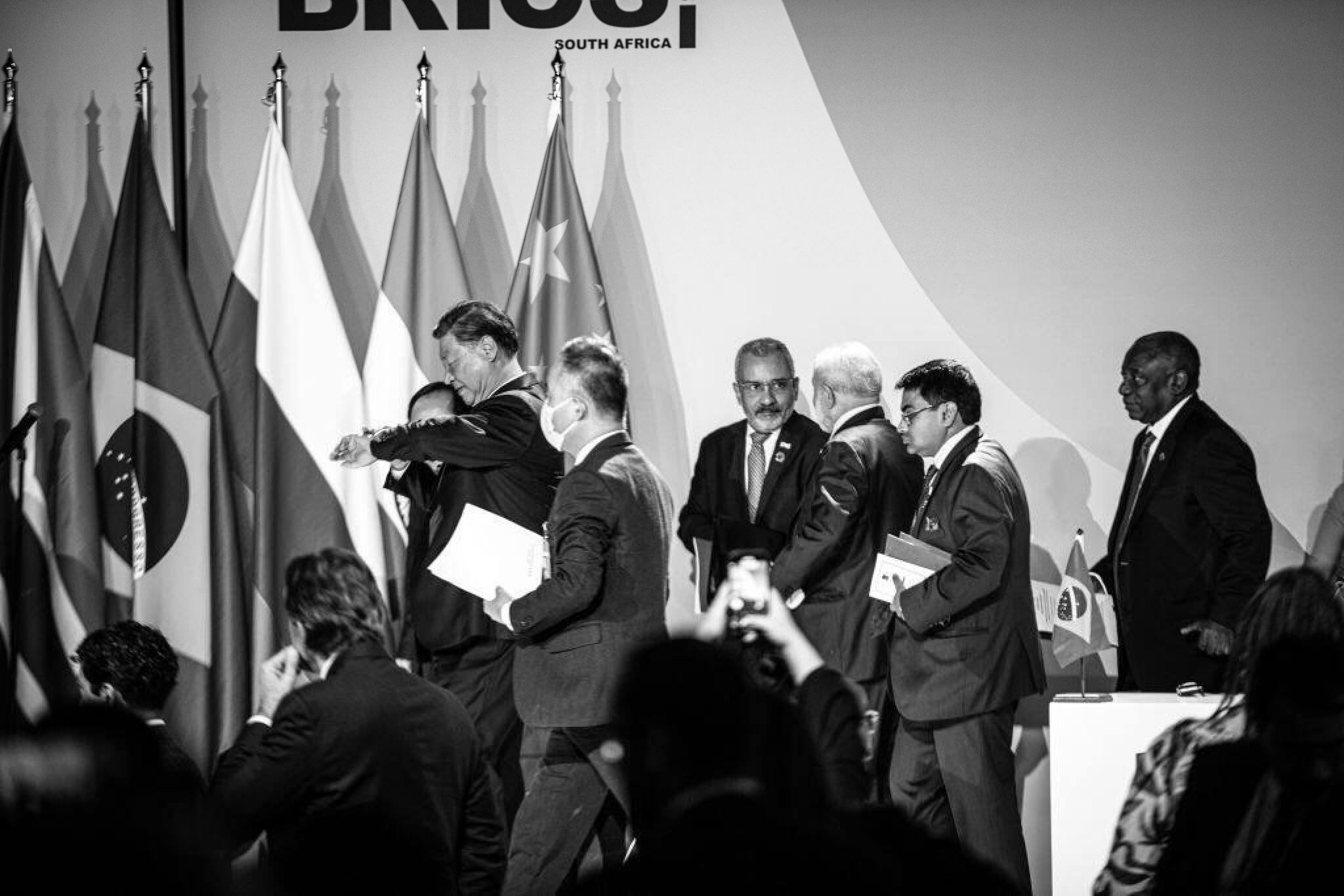
How likely is it for BRICS to transform into a military alliance amid global geopolitical tensions and regional conflicts?
FEBRUARY 22, 2024

The ongoing geopolitical tensions and regional conflicts around the world resemble the prelude to a major war, where parties are scrutinizing each other’s moves. The Russia-Ukraine War, which has been ongoing for two years, has tested Russia’s patience by Western states. However, according to a report published by the IMF, it is evident that this war has not achieved its objectives. The report suggests that Russia emerged from the embargoes even stronger.
Alongside this conflict, the Palestine-Israel War, ongoing since October 7, 2023, serves more global objectives. In this war, Hamas was tasked with the assassination of the heir to the throne of Austria-Hungary. Hamas fulfilled this task diligently. However, the process did not go as the West desired. One of the main reasons for this was Israel’s disregard for the rules of war, acting ruthlessly, leading to international condemnation. Extensive protests in developed countries prompted the United States to reconsider its unconditional support for Israel.

The biggest loser in this war has been Israel. It can be argued that the Jewish community and Israel have entered a process of annihilation in the eyes of the international community. Their wealth and political power will no longer save them. Subsequently, the United States has also lost. Its unwavering support for Israel has eroded international trust in the long run. These reactions have brought Israel to the international court under the leadership of South Africa, resulting in a significant decision finding Israel guilty. With this decision, Israel’s approximately 70 years of anti-Semitic rhetoric have come to an end.
The Israeli government under Netanyahu has inflicted the greatest harm on its own people. Another harm done by Netanyahu is the erosion of trust in Western countries, particularly the United States and the United Kingdom. This trust issue is drawing the international community closer to Russia and China under the BRICS umbrella. For non-aligned countries rejecting the imposition of Western demands and dominance, BRICS becomes a focal point.
Introducing BRICS briefly, it was founded in 2006 under the leadership of Russia. It is an abbreviation for an international organization comprising Brazil, Russia, India, China, and South Africa. This union aims to increase international economic cooperation, support the economic power of member countries, and have more influence in global economic relations.
BRICS also supports political dialogues and diplomatic relations among member countries. Members stand in solidarity to determine common positions on international issues and have more say in global governance. Under China’s “Belt and Road Initiative,” infrastructure cooperation among BRICS countries has increased. Additionally, various agreements have been signed among BRICS countries to increase trade and implement trade facilitation measures. It is expected that cooperation among member countries will deepen and expand in the future.
It is worth remembering that at the last meeting held in August 2023, Argentina, Egypt, Iran, Ethiopia, Saudi Arabia, and the United Arab Emirates joined this organization. Additionally, it was reported that 16 countries officially applied for membership. Furthermore, approximately 30 countries, including Bahrain, Bangladesh, Belarus, Algeria, Indonesia, Morocco, Honduras, Kuwait, Cuba, Mexico, Nigeria, Syria, Tajikistan, Thailand, Tunisia, Venezuela, Vietnam, and Greece, are in line to join.
According to a study published by Statista, NATO currently has a total of 20,633 military aircraft, while Russia has only 4,182 military aircraft. Additionally, NATO has 2,151 warships compared to Russia’s 598 military ships. Statista reports that most of Russia’s 12,566 tanks are from the Soviet era.
Considering these figures, it is evident that NATO has about four times as many aircraft and ships as Russia. Under these circumstances, it is obvious that Russia will not engage in war against NATO alone.
When we carefully examine the BRICS’s member states, it is possible to say that Russia’s military and nuclear power, China’s economic power, and the geopolitical position and resource wealth of India, South Africa, Brazil, Argentina, Ethiopia, and Egypt are predominant. Additionally, the rich oil and natural gas resources of Saudi Arabia, Iran, the United Arab Emirates, and Russia would play a vital role in a potential war.
Given the arms race and polarization among developed countries today, it is highly likely that BRICS will incorporate more countries and evolve into a military pact within a few years. It can be said that an alliance similar to the Warsaw Pact under the leadership of Russia and China is the most likely scenario.
In a unipolar world, the hegemony of the United States is increasingly disturbing many countries. Unconditional support for Israel appears to have been the the last straw.
This leads to the question, when will BRICS become a military alliance? The rapidly changing world conjuncture will provide the answer. However, it is a fact that this alliance is not far off.
A curated seletion of FA’s must-read stories.
Written By: SHAGNIK BARMAN
Written By: BERK TUTTUP
Written By: ABBY L’BERT
Written By: BILLY AGWANDA
Written By: HIRA SARWAR
Written By: BATUHAN GUNES
Written By: LEON REED
Written By: DARSHAN GAJJAR

Bahaddin Erkol graduated from the National Defense University as a naval officer in 2002.After serving in various units of the Turkish Armed Forces and at the Russian desk, he retired in 2023. In 2016, he completed his master's degree in international relations and security on "Sharing of Maritime Jurisdiction Areas in the Black Sea in Case of Crimea's Connection to Russia (Unpublished Thesis)". Bahaddin Erkol, who is fluent in Russian and English, worked as a Russian translator for a short time after his retirement. He currently conducts research and writes articles specifically on Russia, Ukraine and the Black Sea.
Written By: GABRIEL RAMIREZ
Written By: DILARA SAHIN
Written By: DILRUBA YILMAZ
Written By: NILAY CELIK
Written By: ELDANIZ GUSSEINOV
Written By: JOSEF SCHOEFL
Written By: SELCAN BEDIRHANOGLU
Written By: FATIH CEYLAN
FA’s flagship evening newsletter guilding you through the most important world streis ofthe day. Delivered weekdays.
